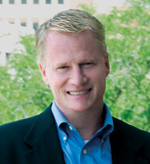Column: Forever Olympians
The University of Michigan has sent 226 athletes and coaches to the Olympic Games. Wolverines have competed in every modern Olympics since the first in 1896. The numbers are impressive, but the individuals in those numbers, past and present, are far more interesting.
In the opening ceremonies next week, when the United States flag bearer declines to dip the Stars and Stripes for Queen Elizabeth, he or she will be following the lead of Ralph Rose, a Michigan alum who refused to lower the flag in the 1908 London Olympics, for King Edward VII. Rose explained, “This flag dips for no earthly king.”
Wolverines have also made their mark on the podium, winning 138 medals, including 65 gold. This year, Michigan is sending 26 athletes and coaches to London, who will compete in nine different sports.
The list includes Betsey Armstrong, a graduate of Ann Arbor Huron High – widely considered the greatest high school in the history of Western Civilization (which also happens to be my alma mater). She will play goalie for the water polo team.
Tiffany and Jeff Porter both set hurdling records at Michigan, before getting married – even as Tiffany was becoming a doctor of pharmacy.
There’s Connor Jaeger, an engineering student who wasn’t an exceptional swimmer when he started at Michigan, and finished as a three-time NCAA All-American.
There’s Sam Mikulak, a gymnast, who broke both ankles at a meet last year on the same landing. He finished his remaining events – and learned afterward he’d fractured both ankles. Not all tough guys play football.
And there’s Jerome Singleton. When he was just one year old, doctors amputated his right leg below the knee. He went on to become an engineering student, and a world-class Paralympian – Michigan’s first.
The 2012 Wolverine Olympic contingent is one of Michigan’s best, and is sure to make a splash in London. But it will be hard for any of them to surpass the legacies of DeHart Hubbard and Eddie Tolan.
DeHart Hubbard was a first-rate sprinter, who also set the world record for the long jump in 1925. He set Michigan’s record for the event the same year – which stood until 1980. It still ranks as the school’s second best mark – 87 years later. He also set the Big Ten championship long jump record, which was broken by Jesse Owens – and no one else, to this day.
In the 1924 Paris Olympics, Hubbard became the first African-American to win an individual Olympic gold medal. But in that distinction lay his only limitation. Despite graduating from Michigan with honors in 1927, Hubbard could only find work in positions reserved for African-Americans.
Right when DeHart Hubbard was leaving campus, Eddie Tolan was arriving. His track team at Detroit’s Cass Tech High won the national championship – and the “team” consisted of Tolan, and just one other athlete.
Tolan set plenty of marks himself, including a world record in the 100-meter dash – on a track that sloped two-and-a-half feet uphill.
In the 1932 Los Angeles Olympics, Tolan won the 100-meters over the legendary Ralph Metcalfe in a photo finish, then breezed to another gold medal in the 200, earning him the title of “the world’s fastest human.”
Michigan’s governor declared the date of his return “Eddie Tolan Day,” as “as an expression of Michigan’s pride.” Detroiters packed the train station to give Tolan a hero’s welcome. But even as the crowd gushed over its native son, Tolan noticed his half-brother picking up trash on the park lawn, and realized he “was luckier than I am,” simply because he had a job.
Tolan had dreamed of becoming a doctor, but he could only get a poor-paying job as a county clerk. When that ended, Tolan went from city to city, walking the streets, looking for work. He even appeared in a vaudeville act with Bill “Bojangles” Robinson, which cost Tolan his amateur status.
Tolan died in 1967, and Hubbard in 1976. Both were inducted into the University of Michigan’s Athletic Hall of Honor, posthumously.
Few, if any, of Michigan’s current Olympians will outperform these two – but all of them will have more opportunities when their careers are over.
No matter what they do the rest of their lives, however, they will forever be known as Olympians: a title everyone around the world respects, because so few of us are.
About the author: John U. Bacon is the author of the New York Times bestseller “Three and Out: Rich Rodriguez and the Michigan Wolverines in the Crucible of College Football.” He also co-authored “A Legacy of Champions,” and provided commentary for “Black and Blue: The Story of Gerald Ford, Willis Ward, and the 1934 Michigan-Georgia Tech Football Game,” which has been airing on various stations in Michigan and nationally.
The Chronicle relies in part on regular voluntary subscriptions to support our publication of columnists like John U. Bacon. Click this link for details: Subscribe to The Chronicle. And if you’re already supporting us, please encourage your friends, neighbors and colleagues to help support The Chronicle, too!





Apparently Ralph Rose carried the flag but the quote may belong to someone else. In either case I found this article interesting with respect to the 1908 Olympics. [link]
I also found it interesting that the 1908 Olympics were supposed to be in Rome. But Vesuvius erupted in 1906 and the money for the Rome Olympics was sent to Naples instead. London was the second choice for 1908 so the venue was moved to Great Britain.